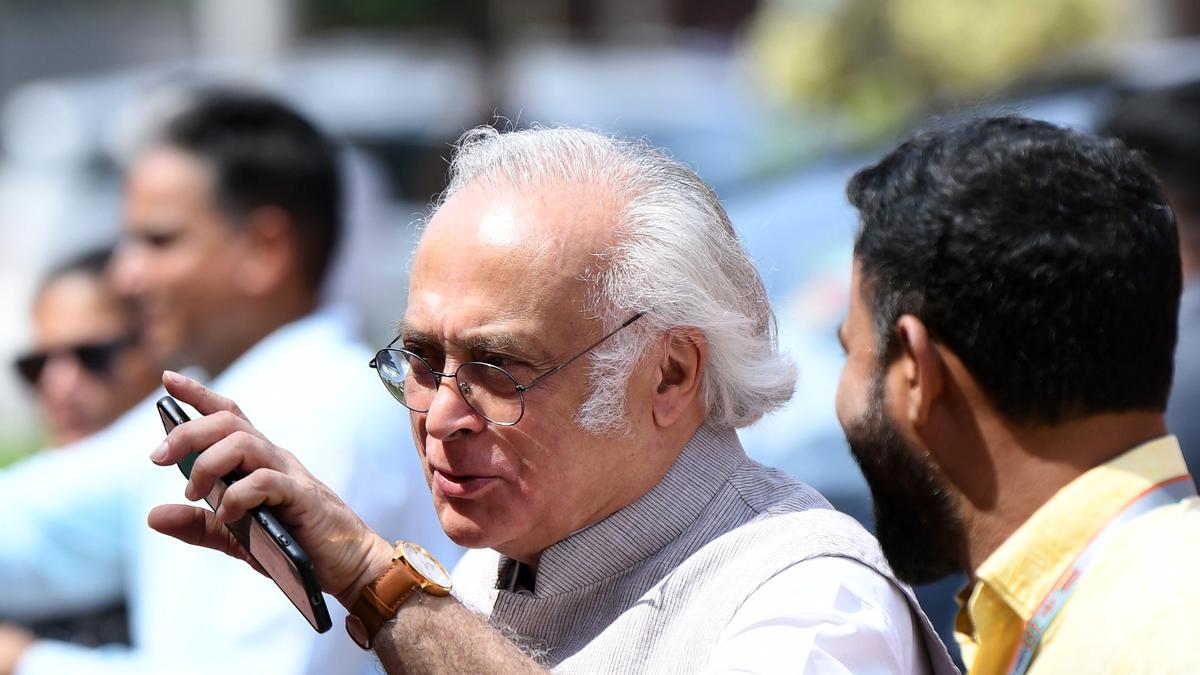ARTICLE AD BOX
Last Updated:October 14, 2025, 11:11 IST
Over the past decade, multiple former idols have spoken out about draconian diets, where trainees are expected to eat less than 500 calories a day and weigh themselves publicly.

Like professional athletes, idol trainees often endure six to ten hours of physical activity daily - dance rehearsals, conditioning, choreography and strict dietary restrictions to maintain under-BMI weight standards (Image: X)
In the neon-lit world of K-pop, where perfection is rehearsed down to the millimeter, a new revelation has shaken the glossy façade. According to a claim reported by The Korea Times and The Korea Herald – two leading English languages daily newspapers of South Korea, in September 2025, an insider from a major entertainment agency alleged that “eight out of ten female trainees stop menstruating" due to extreme diets and training routines.
The statement, first appearing in journalist Lim Sang-hyeok’s exposé ‘K-Pop: Idols in Wonderland’, paints a harrowing picture of the physical toll behind South Korea’s most glamorous export.
The figure has since ricocheted across headlines, spawning debate, outrage, and skepticism. Could it really be true that the majority of aspiring female idols who are nothing but teenagers chasing stardom, lose their menstrual cycles in the process? Or is it an exaggerated symptom of a larger, undeniable problem: the punishing standards that govern South Korea’s idol industry?
The Origins of a Shocking Statistic
The claim did not emerge from a medical journal but from the corridors of the entertainment industry itself. In The Korea Times report summarizing the book’s findings, an unnamed trainee development team member claimed that roughly 80 percent of female trainees “stop menstruating during their training period." The Korea Herald echoed the report, describing it as one of several “dark truths" about the K-pop system.
This wasn’t presented as hard data – no surveys, no medical studies, no official numbers, but as insider testimony. Yet, the number felt disturbingly plausible to many in South Korea.
Over the past decade, multiple former idols have spoken out about draconian diets, where trainees are expected to eat less than 500 calories a day and weigh themselves publicly in front of management.
Even the Korean government has previously acknowledged the industry’s excesses. In 2024, Seoul’s city council passed an ordinance discouraging “coercive dieting and body-check practices" in entertainment academies. But that law, like many before it, remains largely symbolic.
What Science Actually Knows
While the 8-in-10 figure lacks scientific backing, the phenomenon it describes which is menstrual suppression due to stress and undernutrition, is very real and well documented in medical research.
The condition, known as Functional Hypothalamic Amenorrhea (FHA), occurs when the body’s energy intake is too low to sustain normal hormonal cycles. It’s common among ballet dancers, gymnasts, and endurance athletes, where amenorrhea rates range between 20 and 50 percent according to peer-reviewed studies on athletic populations.
In 2019, a South Korean study examining adolescent athletes found delayed menarche (the onset of menstruation) and irregular cycles to be far more common among elite trainees compared to the general population. The authors noted that “intense exercise and restricted diet can significantly affect reproductive health," though they did not study entertainment trainees specifically.
The parallels, however, are impossible to ignore. Like professional athletes, idol trainees often endure six to ten hours of physical activity daily – dance rehearsals, conditioning, choreography and strict dietary restrictions to maintain under-BMI weight standards. The difference is that unlike athletes, their world lacks nutritionists, sports doctors, or rest periods.
“We Were Told Hunger Means Discipline"
One former trainee, quoted anonymously in The Korea Herald, recalled that she “didn’t have a period for almost a year" while training at an academy in Gangnam. “We were told that hunger meant discipline and that bloating meant failure," she said. “If someone gained even half a kilogram, they were made to skip meals or run extra hours after practice."
This culture of deprivation isn’t confined to small agencies. Even major entertainment houses have been accused of normalizing extreme weight control. Several idols including IU and former Nine Muses members have publicly spoken about surviving on little more than apples, protein shakes, or boiled eggs for weeks during their pre-debut years.
Medical experts in Seoul’s Yonsei University Health System warn that such prolonged caloric restriction can suppress ovulation and disrupt the hypothalamic-pituitary axis, leading to amenorrhea. “The body interprets starvation as a threat to survival," said Dr. Park Mi-young, a reproductive endocrinologist. “In that state, menstruation becomes a luxury function, it shuts down first."
Why 80 Percent Feels Both Sensational and Possible
While there is no clinical survey verifying that 80 percent of trainees stop menstruating, the number resonates because it fits the broader logic of the system. As The Korea Times observed, K-pop trainees are expected to live “almost militarized" lives – controlled diets, strict sleep schedules, and near-total surveillance.
A 2022 Korean Institute for Health and Social Affairs report on adolescent entertainers described “systemic nutritional imbalance and chronic fatigue" as recurring health issues among trainees. Another white paper by the Korea Entertainment Management Association noted that the majority of young trainees consume “less than 50 percent of recommended daily calorie intake."
Given this, it’s not hard to imagine menstrual disruptions being widespread. Whether it’s 8 in 10 or 5 in 10 matters less than the fact that it is normalized, unrecorded, and largely ignored.
The Medical and Emotional Cost
The health effects of amenorrhea go far beyond missed periods. Prolonged hormonal suppression can cause loss of bone density, weakened immunity, and future fertility issues. It can also exacerbate anxiety, depression, and fatigue – conditions already prevalent in the idol trainee ecosystem.
In 2023, a study from Ewha Womans University examining female athletes and performing arts students found that “psychological stress and restrictive eating together predict menstrual irregularity and depressive symptoms." The parallels with K-pop life were striking: long hours, public scrutiny, and body-image anxiety all feeding into a physiological collapse.
A former trainer interviewed by The Korea Herald admitted that management often overlooks these red flags. “If a trainee collapses, they’re replaced the next week," he said. “There’s always another girl waiting."
The Silence Around Female Health in K-Pop
One of the most telling aspects of this conversation is how rarely women’s health is discussed in K-pop. Menstruation, fertility, and hormonal well-being remain taboo topics in an industry that markets girl groups as eternally youthful and “pure."
A 2024 Korean Women’s Development Institute review pointed out that even health insurance for trainees rarely covers gynaecological consultations. “Their bodies are treated as products," the report stated. “There’s no infrastructure for menstrual health, only for performance health."
What Needs to Change
If the “8 in 10" figure serves any purpose, it is as a wake-up call. The K-pop industry thrives on the illusion of perfection, but it has long ignored the cost that perfection exacts on young bodies. To fix that, experts argue, agencies must implement the same safeguards found in elite sports systems: nutritional monitoring, hormonal health screenings, and psychological counselling.
Government oversight, too, must evolve beyond symbolic legislation. Seoul’s “trainee protection" ordinance should include mandatory medical check-ups and weight-management limits, with penalties for coercive diet practices.
The Truth Beneath the Allegation
At its core, the “8 in 10" claim may be anecdotal, but it’s an anecdote that rings true in a culture of silence. Even if the number is inflated, the suffering behind it isn’t. The hidden cost of K-pop stardom isn’t only physical exhaustion or burnout, it’s the quiet erasure of basic bodily functions, treated as collateral damage in the making of idols.
As one Seoul-based nutritionist told The Korea Times, “Menstruation is a sign of health, not weakness. When girls stop having periods, it’s not a sign of discipline, it’s a warning."
Until the industry starts treating that warning seriously, the shine of K-pop will continue to mask a deeper, more troubling reality: that the pursuit of perfection is still being paid for in blood, or more precisely, in its absence.
First Published:
October 14, 2025, 11:11 IST
News entertainment 8 Out Of 10 Stop Menstruating: Inside The Darkest Health Scandal In K-Pop World
Disclaimer: Comments reflect users’ views, not News18’s. Please keep discussions respectful and constructive. Abusive, defamatory, or illegal comments will be removed. News18 may disable any comment at its discretion. By posting, you agree to our Terms of Use and Privacy Policy.
Stay Ahead, Read Faster
Scan the QR code to download the News18 app and enjoy a seamless news experience anytime, anywhere.


 2 hours ago
5
2 hours ago
5









 English (US) ·
English (US) ·